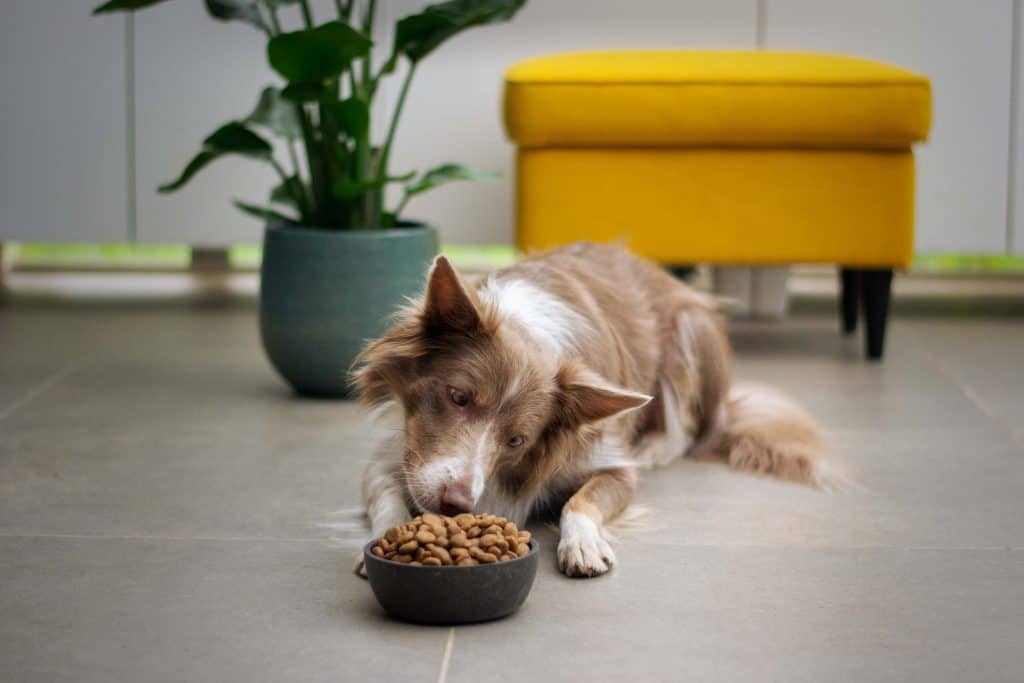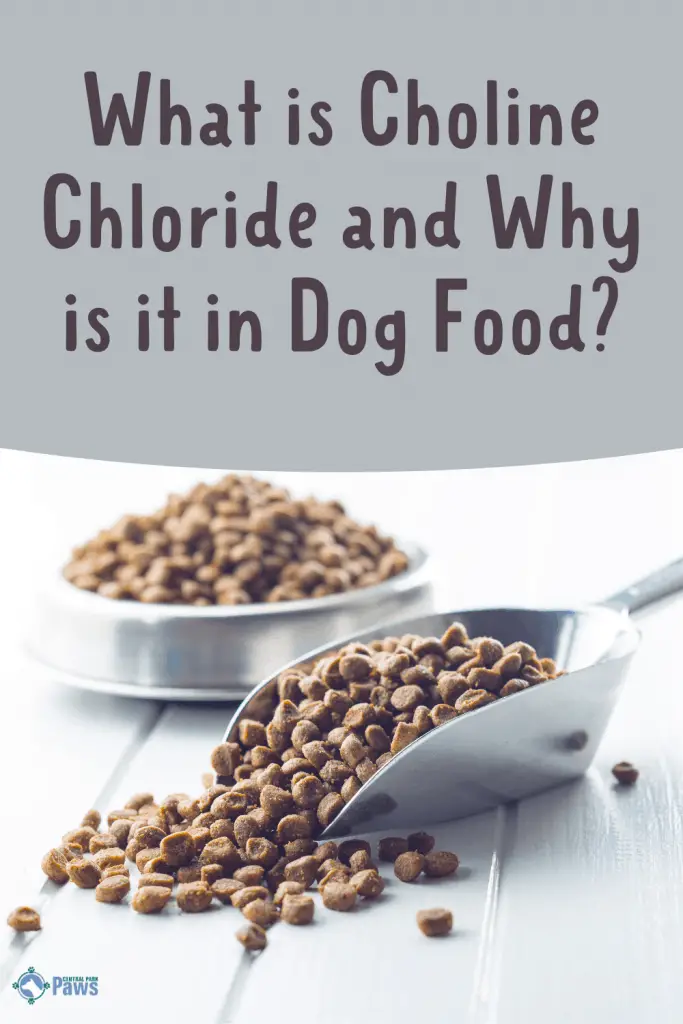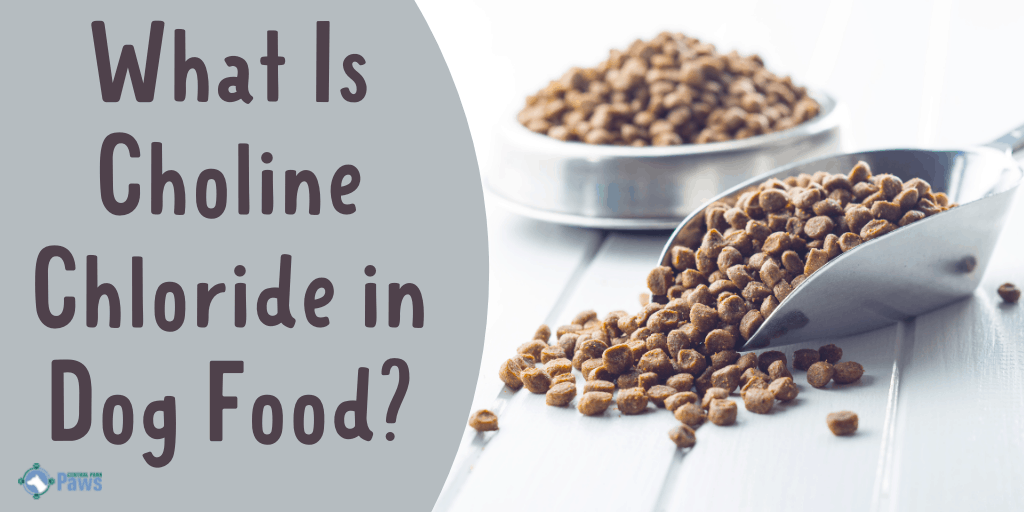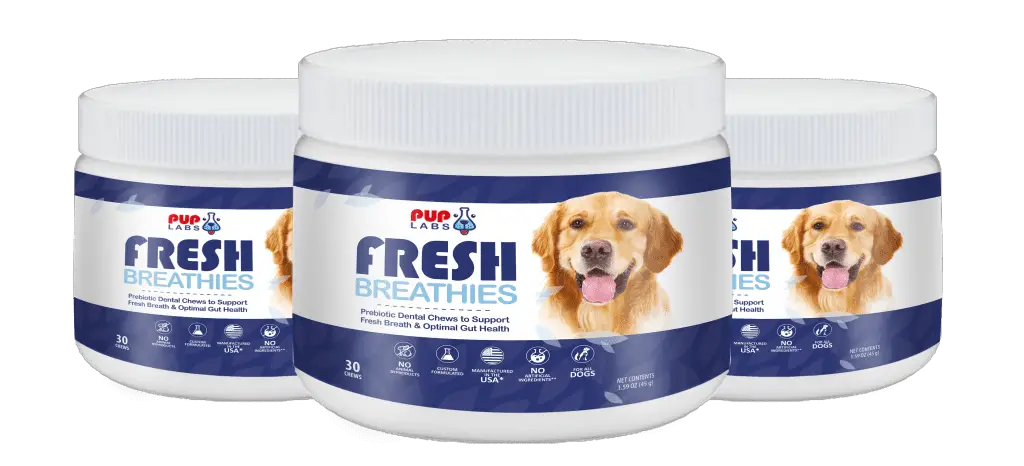Ensuring your dog’s health and well-being does not end with sending it to a vet clinic for a regular check-up.
Yes, it helps to learn from a specialist what steps you need to keep your dog in shape all the time, but understanding what you need to follow is essential, especially when you are the one in control of your dog’s daily life.
For example, you choose what food to give and what supplement to add to it.
Vitamins A, C, and E are the most common supplements you can ever provide to your pets.
However, there are still more supplements you might not know that are more relevant to your dog’s health condition.
For example, have you ever heard about choline?
This type of vitamin is becoming very popular today as a dog food supplement. Let’s find out what it is.
Related: What is Chicken Meal? Should it Be in My Dog’s Food?
What Is Choline?
Choline is a water-soluble chemical nutrient found in plants and animals.
The precursor of phospholipid, methyl groups, and acetylcholine plays a vital role in normal body function.
For example, phospholipid helps produce pulmonary surfactants to make lungs more elastic, so they can contract and expand, while methyl groups like methionine and betaine contribute to the improved metabolism.
Related: See Why DL-Methionine is in Your Dog’s Food
On the other hand, acetylcholine is a neurotransmitter that works in the nervous system to ensure that muscle control, memory, and mood can function normally.
Choline can also be found in the human body, but the amount is not optimum. So we have to source it further elsewhere from meat and vegetables.
Since humans and dogs have similar biological makeup, your dog should get more choline from an external source, too.
That is why many dog food manufacturers provide this nutrient in the form of choline chloride.
Related: How Many Cups in a Pound of Dog Food?
What is Choline Chloride in Dog Food?
Choline chloride is the synthesis of trimethylamine, hydrogen chloride, and ethylene oxide.
The synthesis is artificially made and commercially produced as an animal feed additive to accelerate the growth of farm animals.
Choline chloride is a stable form of choline that can be added to dog foods without significant change in its properties, especially when added to multivitamin premixes.
However, along with other vitamins, it can be a bit destructive. It may affect the composition of other vitamins and reduce their efficacy.
But don’t you worry, choline chloride doesn’t have to be mixed with other vitamins.
You can buy it separately in a capsule instead of sourcing it from fortified premixes.
The important thing is that it preserves its efficacy and is safe. Though it’s artificially synthesized, it’s still an organic compound.
Is Choline Chloride Good for Dogs?
The answer is definitely yes. Choline (or choline chloride) improves a dog’s brain function.
Therefore, it is suitable for dogs of all ages. It makes your pups more intelligent and reduces your old dog’s senility.
Moreover, it helps improve its motor skills, especially when you are training it.
Aside from brain development, choline chloride is essential for a dog’s good digestion.
It enhances its metabolism so that its body quickly absorbs all the nutrients in the food you give it.
With good digestion, your dog will become very active and robust.
Choline chloride is also suitable for the respiratory system, thereby prolonging your dog’s exhaustion when playing under high temperatures.
In addition, it helps prevent mucus buildup in the lungs during cold weather.

Is Choline Chloride Bad for Dogs?
Choline chloride is not harmful to dogs because it is a water-soluble vitamin, which means that anything in excess is excreted in the urine.
In addition, there is still no sufficient study or evidence pointing to its toxicity.
According to European Food Safety Authority or EFSA, choline chloride is an effective source of choline for domestic animals.
How Much Should Choline Chloride Be in Dog Food?
Determining the amount of choline chloride in dog food should not bother you if you are concerned about whether or not too much of it is dangerous.
There is no specific data that has been established to say that large doses are risky.
But, on top of that, no data will confirm their therapeutic value.
However, EFSA’s Nutritional Guidelines for Complete and Complementary Pet Food for Cats and Dogs suggest an optimum health benefit known as RDA or Recommended Dietary Allowance.
The guidelines say that the minimum amount a dog should take to avoid deficiency is 120 mg for adults and 170 mg for young dogs per 100 grams of dry matter.
And if taken per 1,000 kcal of metabolizable energy, the minimum for adult dogs is 300 mg and 425 mg for young dogs.
Therefore, when you buy dog food with choline chloride, be concerned about the minimum recommended amount rather than the maximum. Deficiency is more relevant than toxicity.
Dog Foods with Choline Chloride
For sure, most manufactured dog foods have choline chloride.
But if you want to feed your dog with organic food or home-prepared meals instead of manufactured ones, find those that are rich in choline.
These foods are:
- Cauliflower
- Dairy
- Soy
- Broccoli
- Fish
- Chicken Breast
- Beef
- Egg Yolks
- Liver
As you can see, most of the above foods are meat-based.
Because not all dogs would like eating vegetables or green leafy food rich in choline, you won’t find it challenging to give them meat-based meals like beef and dairy products.
However, if you prepare them as home-cooked meals, do not overcook them. Choline is water-soluble and is easily destroyed in extreme heat.
Conclusion
Let’s not forget that choline is not a medicine. It’s still a nutrient. You should not use it to treat a particular disease and expect your dog to get well just by taking it.
Nevertheless, as a nutrient, a regular supply prevents disease. As the saying goes, “Prevention is better than cure.”
When buying choline chloride-rich foods for dogs, choose the one that meets the recommended amount.
Do not immediately believe any claim that large doses can be therapeutic.
Manufacturers must have a disclaimer that says, “No therapeutic claim.” Instead of resorting to self-medication, it is still best to see a veterinary doctor once in a while.





